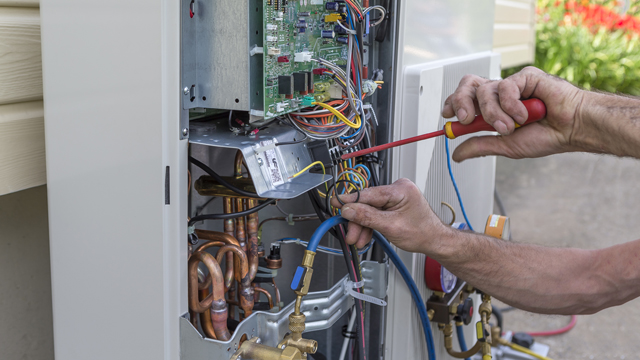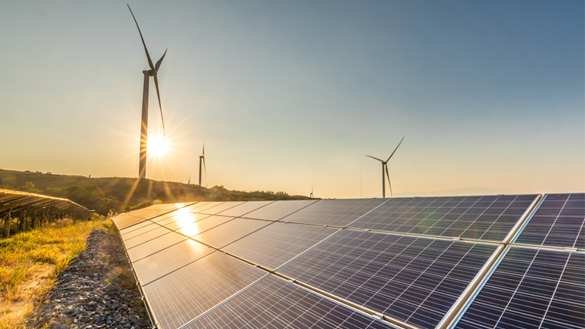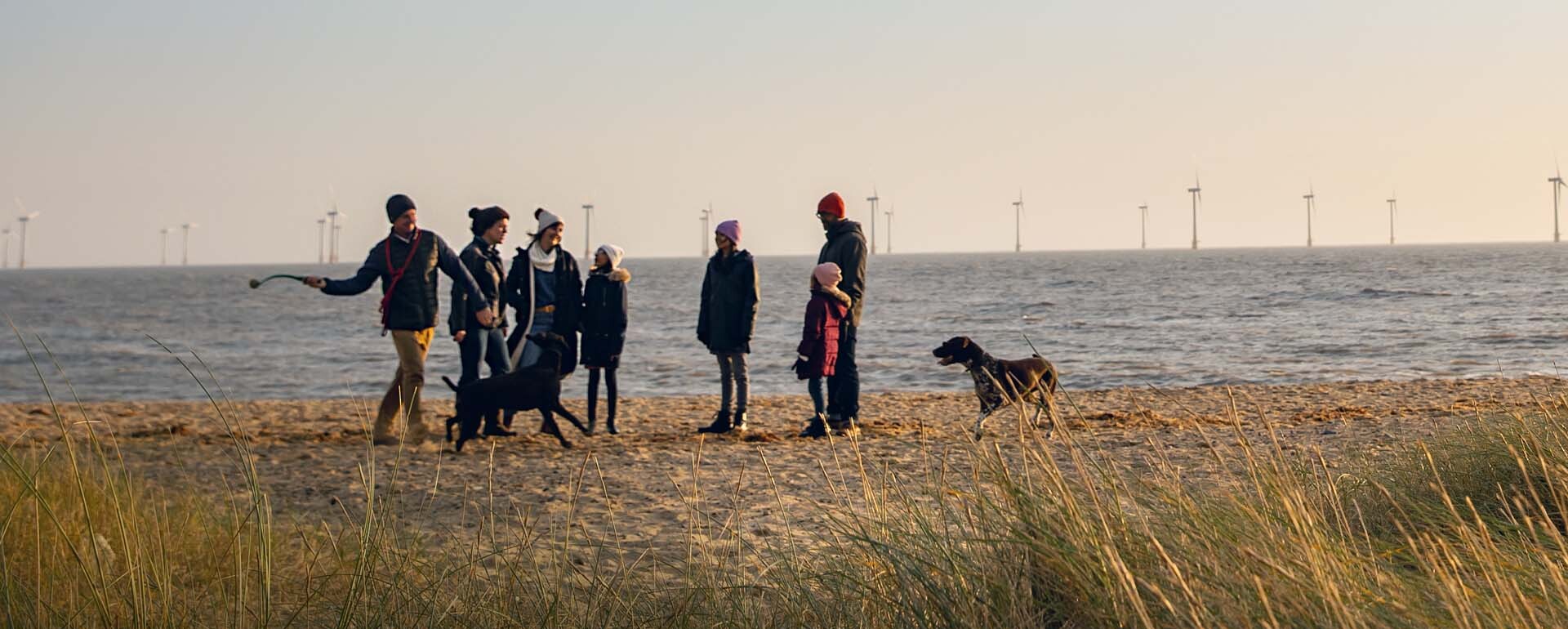
What is a heat pump?
In simple terms, a heat pump is a device that takes heat from the air or ground around a building and increases it to a temperature that keeps our homes and businesses warm inside.
Find out more about heat pumps and their potential to help us transform how we heat our homes and businesses in the future.
As we seek ways to lower our carbon emissions, we need to switch from heating methods that rely on high-carbon fuels to cleaner, low- or zero-carbon alternatives – one of which is the heat pump.
Heating currently plays a big part in our carbon emissions; around 40% of global emissions come from buildings, and most of these result from the ways we heat our homes and businesses.
Using natural gas for heating contributes around almost 20% of the UK’s greenhouse gas emissions, and around 35% in the Northeastern US. So switching to cleaner, low-carbon options will play a critical role helping us reach net zero and tackle climate change.
Heat pumps: what are they and how do they work?
A heat pump takes heat from the ground or air around a building and increases it to a temperature that keeps homes and businesses warm.
Think of it as a refrigerator working in reverse – instead of keeping your food products cool, it warms your home using a refrigerant, which can evaporate into gas and condense into liquid.
Find out more about how heat pumps work
What do heat pumps have to do with meeting net zero by 2050?
Taking heat from the air or ground in a constant cycle is sustainable and renewable, with low or no carbon dioxide (CO2) emissions – so heat pumps are both environmentally friendly and a great heating alternative to help us reach our goal of reaching net zero by 2050.
Transforming the way we heat our homes

In the run up to net zero 2050, we’re going to see a transformation in the way we heat our homes.
Over 20,000 homes every week will need to switch to a low-carbon heat source between 2025 and 2050, so, heat pumps are set to become much more common in the future.
According to government figures from 2020, there are currently around 1.7 million gas boiler installations every year. But, by the mid-2030s, the aim is for all newly installed heating systems to be low-carbon or have the potential to be converted easily to a clean fuel supply.
In the Energy White Paper 2020 the UK Government outlined its ambition to increase the installation of heat pumps from 30,000 a year to 600,000 a year by 2028, to accelerate the decarbonisation of heating.
Advantages of heat pumps
Advantages of using a heat pump compared to a traditional heating system include:
By reducing your carbon emissions, heat pumps are a more environmentally friendly heating option.
A heat pump system is three times more efficient than a gas boiler.
You may be eligible for the Boiler Upgrade Scheme (formerly the Clean Heat Grant), which has been launched to support the installation of heat pumps.
Although the up-front installation cost may be more, heat pumps have the potential to reduce your heating bills in the long term.
Disadvantages of heat pumps
Energy efficiency measures need to already be in place, such as roof and cavity wall insulation, and radiators may need to be increased in size. Therefore heat pumps may not be suitable for all buildings, particularly older ones.
There may be noise from the pump condenser.
Installing ground-source heat pumps requires a large garden with easy access for digging, with some disruption.
Heat pumps may be more expensive to install, although they do have the potential to reduce your heating bills in the long term.
Will heat pumps be the home heating number one choice in the future?
According to the government’s Energy White Paper, fewer than one per cent of homes in England currently use a heat pump. So clearly the pace of change and scale needs to pick up in this home energy transformation. There is no ‘silver bullet’ for home heating, as different low-carbon heating solutions may be required for different types of buildings and locations. Heat pumps are expected to make an important contribution to decarbonising heat.
Our own research, which investigated what matters to consumers in the transition to lower-carbon heating, has highlighted the knowledge gap between good intentions and daily lives; 93% of people said climate change was a serious or very serious issue but only 5% identified heat as a main contributor to the UK’s carbon emissions.
The future of heat
Did you know that heating is one of the biggest emitters of the greenhouse gas CO2 across the world? So, in order to reduce our carbon emissions and tackle climate change, we need to change the ways we heat our homes and businesses.
Watch the videoThat said, heat pumps are set to become one of the new clean alternatives to fossil fuels alongside biomass boilers – which burn plant-based materials like wood pellets – hydrogen boilers and heat networks for densely populated areas, like the one our Innovations team is testing at our Deeside Centre for Innovation.
It’s likely that homeowners will be offered a mosaic of solutions, including heat pumps, rather than a one-size-fits-all decarbonised heating solution.
Our research found that key to the home heating transformation will be:
keeping the reliability and comfort we’ve all come to expect
transparency on upfront and ongoing costs
future financial incentives, such as the current green grants and lower energy bills
preparing suppliers, installers and equipment manufacturers for the clean home energy transition
ensuring consumers get the right advice when considering future heating needs
that any heating solution needs to be installed with the right level of energy efficiency measures and smart operation.
Last updated: 26 Apr 2022
The information in this article is intended as a factual explainer and does not necessarily reflect National Grid's strategic direction or current business activities.




